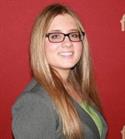In This Section
Subscribe to PICPA Blogs
Sign up for weekly accounting industry updates from PICPA's blog, podcasts, and discussion board topics.
Subscribe for Weekly Updates
Subscribe for Weekly Updates
PICPA Staff Contributors
Disclaimer
Statements of fact and opinion are the authors’ responsibility alone and do not imply an opinion on the part of PICPA officers or members. The information contained in herein does not constitute accounting, legal, or professional advice. For professional advice, please engage or consult a qualified professional.

A Simple, Low-Cost Option for Meeting the 150-Credit-Hour Requirement
I once met a senior accounting major who was behind in her 150-credit-hour requirement and needed to complete them before beginning her job. The CLEP was her ticket to earning credits quickly and inexpensively.
By Guest Blogger, Amber Stack
 Not many college freshmen are certain as to the career path they plan to pursue after graduation. Some start college with an undeclared major, while others change their major multiple times as they learn more about themselves and their interests. I was not one of them. I grew up being told I was a spitting image of my father, so it was not a surprise to my family that I followed in his career footsteps and entered my freshman year of college as an accounting major aspiring to be a CPA.
Not many college freshmen are certain as to the career path they plan to pursue after graduation. Some start college with an undeclared major, while others change their major multiple times as they learn more about themselves and their interests. I was not one of them. I grew up being told I was a spitting image of my father, so it was not a surprise to my family that I followed in his career footsteps and entered my freshman year of college as an accounting major aspiring to be a CPA.I began my freshman year in 2011, a few months before the 150-credit-hour requirement to become a licensed CPA took effect. All of my professors spoke about this change, so my classmates and I were fully aware that we had to earn 150 credits. But no one knew exactly how we were expected to do so.
My professors and colleagues all had different opinions, and I quickly learned that there was not a right or wrong answer. Some suggested I pick up a second major or minor and obtain the credits with undergraduate classes. Others advised me to go to graduate school and earn the credits and a master’s degree at the same time. I learned I also had the option to take “filler” classes at my university or a community college. These classes would give me the extra credits I needed but wouldn’t count toward a second degree or minor.
At that point in my life I could not afford to go into debt for graduate school or pay extra money for a major or classes I didn’t need. Those didn’t seem like viable options for me. Then I met a senior accounting major who introduced me to the College-Level Examination Program (CLEP). She was behind in her 150-credit-hour requirement and needed to complete them before beginning her job. The CLEP was her ticket to earning credits quickly and inexpensively.
CLEP exams are developed by the College Board. They are designed to help college students, high school graduates, home-schooled students, and military personnel “earn college credits for what they already know.” You take a CLEP exam at one of the College Board’s test centers. The exam costs $80, plus a sitting fee that varies based on the test center. I’ve found that some test centers do not charge a sitting fee, while others charge a small fee of $25 to $35.
There are 33 subjects available for testing. If you pass the exam, the credits will transfer to your institution, much like taking a summer course at a community college on a pass/fail basis. Most exams are worth three credits, but depending on your institution they may be worth more. Your institution, however, may limit which exams you can take for credits. This information is readily available at clep.collegeboard.com.
Needless to say, I was ecstatic to learn about the CLEP exams.
I chose to test out of a few classes this way. To prepare for the examinations, I used Research & Education Association Inc. (REA) Test Prep for CLEP books. REA is not affiliated with College Board, but they design textbooks to assist in preparing for a CLEP exam. The textbooks only cost $20-$30 and include practice tests. I have found a few questions in the exams on material that was not mentioned in the textbooks, but I have never had an issue passing a CLEP exam by studying this way.
I have already tested out of financial accounting and college algebra, and I am studying to take my precalculus exam. By the end of the summer I will have completed my 150-credit-hour requirement, and 14 of those credits will have been from CLEP exams. I have found them to be a simple fix for aspiring CPAs who want to save time and money fulfilling this requirement.
Amber Stack, Bloomsburg University Graduate, Future Audit Staff at Kreischer Miller







Leave a commentOrder by
Newest on top Oldest on top